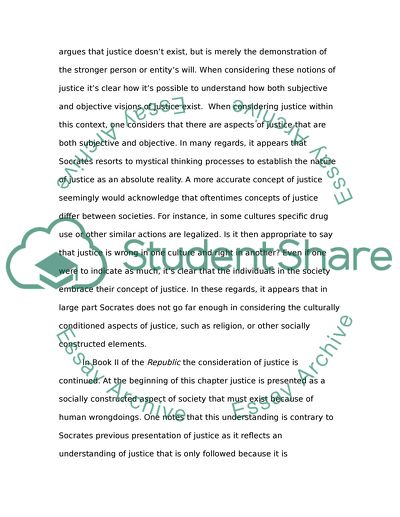Cite this document
(“Justice or moral uprightness of human soul according to Plato Essay”, n.d.)
Retrieved from https://studentshare.org/philosophy/1427798-justice-or-moral-uprightness-of-human-soul
Retrieved from https://studentshare.org/philosophy/1427798-justice-or-moral-uprightness-of-human-soul
(Justice or Moral Uprightness of Human Soul According to Plato Essay)
https://studentshare.org/philosophy/1427798-justice-or-moral-uprightness-of-human-soul.
https://studentshare.org/philosophy/1427798-justice-or-moral-uprightness-of-human-soul.
“Justice or Moral Uprightness of Human Soul According to Plato Essay”, n.d. https://studentshare.org/philosophy/1427798-justice-or-moral-uprightness-of-human-soul.


